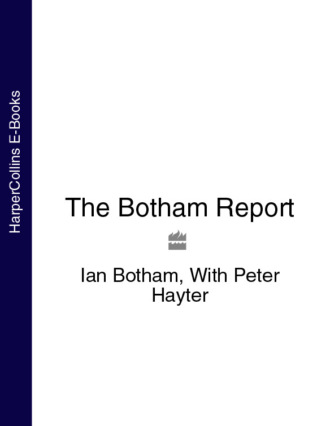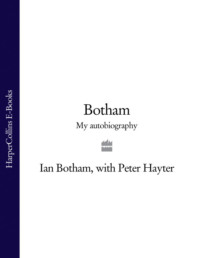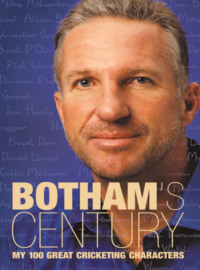
Полная версия
The Botham Report
The fact that they chose the former rather than the latter option displayed fatal weakness from the men at the top. Their subsequent award of £1,000 to each player as a ‘hardship bonus’ was just a joke. In Australia and New Zealand the players’ behaviour failed to improve. Broad and Graham Dilley were both fined for on-field incidents; on-field dissent often led by Gatting and then later supported by team manager Micky Stewart gave the squad a reputation for surliness they surely deserved.
From that moment Gatting was dead in the water as captain. Had the selectors made a clean break then England would have been able to approach the 1988 summer series against the West Indies as a fresh start. Gatting himself would have been able to re-focus his thoughts on maintaining his position as the best batsman in the side and the players would have understood the price of poor discipline. Instead, although the Board issued a directive to the selectors to take into account a player’s behaviour as well as his form, Peter May, the chairman of selectors, re-appointed Gatting without a second thought. Such muddled thinking invited disaster.
And then came Rothley Court. Gatting’s critics had waited eagerly for the slightest opportunity to pile in and, while England were achieving a creditable draw against Viv Richards’ side in the first Test at Nottingham his behaviour at the team’s hotel gave it to them with knobs on.
The day after the Trent Bridge Test had ended two national tabloids ran stories of a ‘sex orgy’ at Rothley Court involving unnamed players. The next day Gatting was named as one of them and by the afternoon of 9 June he was sacked. Gatting admitted to the selectors that he had invited a woman to his room for a birthday drink but denied any impropriety. The selectors said they accepted Gatting’s version of events, then sacked him anyway. The saga then rumbled on when the Board fined Gatt £5,000 for publishing a chapter on the events of the Pakistan tour in his autobiography Leading From the Front because of the contractual obligation not to comment on recent tours.
In between times the captaincy issue took on the nature of a game of pass the parcel. John Emburey was appointed for the second and third Tests, although increasingly unsure of his place. Chris Cowdrey, on the strength of Kent’s performances in the Championship, was then given the job when in spite of the fact that while a lovely bloke he resembled a Test match cricketer in name only. Finally, after Cowdrey had been ruled out of the final Test through injury, the selectors turned to Graham Gooch. Twenty-three players were used during the summer series. England lost 4–0. It was all a total fiasco. From Ashes winners eighteen months earlier England ended the summer of 1988 as the laughing stock of world cricket.
There was more, much more, to come, starting with the cancellation of England’s 1988 winter tour to India.
Конец ознакомительного фрагмента.
Текст предоставлен ООО «ЛитРес».
Прочитайте эту книгу целиком, купив полную легальную версию на ЛитРес.
Безопасно оплатить книгу можно банковской картой Visa, MasterCard, Maestro, со счета мобильного телефона, с платежного терминала, в салоне МТС или Связной, через PayPal, WebMoney, Яндекс.Деньги, QIWI Кошелек, бонусными картами или другим удобным Вам способом.






